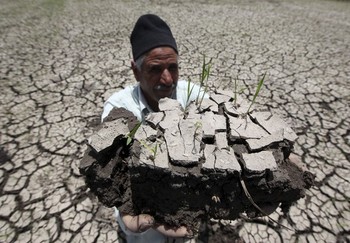Sudan, Egypt & Ethiopia fail to agree on committee to supervise dam construction
November 5, 2013 (KHARTOUM) – The water ministers of Sudan, Egypt, and Ethiopia have failed to agree on the formation of the Grand Renaissance Dam’s supervisory committee which was recommended by the International Panel of Experts (IPoE).

The IPoE is composed of six representatives each drawn from Ethiopia, Egypt and Sudan, and another four international experts and was established to assess the impact of the dam project on downstream countries.
The report which was submitted by IPoE to the three countries last June is believed to show that the $4.7 billion dam will not have any major effect on lower riparian countries of Egypt and Sudan. However Egypt asserts that the deficiencies mentioned by the report need to be addressed before carrying on with the dam project.
Ethiopia’s minister of Water, Irrigation, and Energy, Alamayo Tegno, stressed in a press conference on Tuesday that meetings were postponed due to differences among water ministers, but expressed optimism that they could reach a solution.
Tegno renewed his country’s commitment to sustaining a true cooperation with Sudan and Egypt and underscored Ethiopia’s keenness to a fair and just usage of the dam by all parties without harming the interests of others.
The Ethiopian minister further pointed that the three countries would greatly benefit from the dam, asserting his country’s acceptance of the IPoE report which recommended building the dam according to the international standards and specification without harming the interests of the downstream countries.
Tegno noted that the dam’s funding comes from official and popular resources, saying that Ethiopia is considered among the world’s ten fastest growing countries.
Sudan’s minister of Electricity and Dams Osama Abdallah said that meetings were held in a candid and friendly manner and discussed the best ways for implementing the IPoE’s recommendations.
He disclosed that the three ministers agreed to hold another meeting in Khartoum to complete consultations.
Tegno, in his address before the opening session of the meeting, emphasized his country’s determination to build the dam in order to meet national development objectives and build regional cooperation between Ethiopia, Sudan and Egypt, saying that his government undertook the necessary procedures and precautions for building the dam.
Egypt’s minister of Irrigation, Mohamed Abdel-Motalib, said that it is high time for developing a new strategy which secures the best results for the future generations and said that the meeting represents a pivotal point for the three countries to complete the work which has begun two years ago.
Abdel-Motalib added that Egypt would continue to support all development projects in the Nile valley, saying that their only concern is that water projects in the river Nile must be built after conducting comprehensive studies to ensure conformity with international standards and avoid any negative consequences.
The Egyptian minister further pointed that his country’s delegation to the meeting included a group of highly distinct officials which reflects the importance Cairo attaches to this issue and its determination to reach the desirable results.
When the dam project – which will have power generation capacity of 6,000 MW – goes operational, the horn of Africa’s nation projects it will generate up to 2 million Euros per day from exporting hydro-electricity.
Although Ethiopia is a source to 85% of the Nile’s water resources, a colonial era treaty, however, has allowed Egypt to utilize the lion’s share of the water resources.
The treaty effectively granted the North African nation a veto power against any dam project along the Nile River in upper riparian countries.
Sudan however, has expressed support to Ethiopia’s dam project putting it at odds with Cairo.
(ST)
